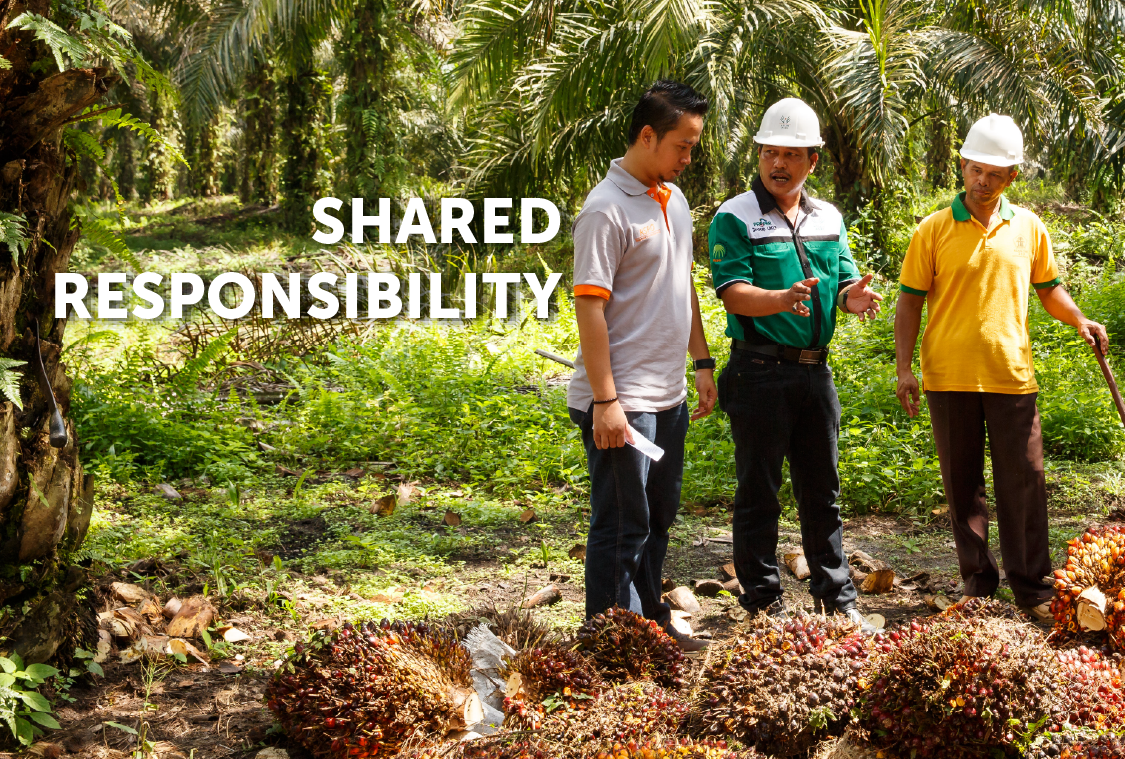With regulatory forces on the rise requiring businesses and organisations to disclose their sustainability performance, Shared Responsibility (SR) implementation is a good starting point in reporting compliance.
Did you know that your organisation could already be implementing some or several of the Shared Responsibility (SR) requirements in its operations, just by being a responsible business committed to sustainable development?
The Shared Responsibility framework is a set of responsibilities designed to help Ordinary, non-grower RSPO members achieve RSPO’s vision “to transform markets to make sustainable palm oil the norm.” By implementing the SR requirements, members demonstrate sustainability leadership in their respective sectors.
Two key outcomes of the SR requirements are putting in place a set of policies and plans, and committing to yearly uptake targets. Members report their compliance with the SR requirements in their MyRSPO portal and through the yearly Annual Communication of Progress (ACOP). Building on this culture of transparent sustainability reporting, this coming April 2023, the Shared Responsibility Scorecard will be launched on the RSPO website. The Shared Responsibility Scorecard will demonstrate to stakeholders where RSPO members are in their sustainability journey, based on the Shared Responsibility framework.
Aligning with ESG, CSR and related sustainability schemes
In an increasingly sustainability-conscious and accountable society, not only investors but also consumers and other stakeholders demand greater transparency regarding environmental and social issues in the palm oil supply chain. As a response, responsible businesses committed to a sustainable industry, including members of RSPO, may already be disclosing their Environmental Social and Governance (ESG) progress along with the goals that have been met.
Acknowledging that there are numerous ESG reporting frameworks and standards available, three themes – planet, society and business – have have been identified as the most significant in terms of their relevance and impact. Some of the identified themes include stakeholder engagement and ethical behaviour in the sphere of governance, climate change, water and air pollution within the framework of environment, as well as dignity and equality, and health and safety related to social aspects.
The SR requirements are rooted in four thematic areas: Transparency and Legality, Social standards, Environmental standards and Uptake. These requirements demonstrate a strong connection to the ESG themes aforementioned, specifically on ‘Information and outreach activities to promote sustainable palm oil’, ‘Commitment to ethical conduct’, ‘Waste and water management plan’, ‘GHG emissions policy and monitoring plan’, ‘labour rights policy’ and ‘occupational health and safety’.
In addition, members may already be implementing a Corporate Social Responsibility (CSR) strategy in harmony with other SR topics such as smallholder inclusion and grievance mechanism, as an example.
In line with these, the RSPO Shared Responsibility Unit is calling on all Ordinary non-grower members to consult internally on the different ESG, CSR, due diligence and/or other sustainability scheme-related activities that their organisations may already be carrying out, in order to identity plans, policies and actions that are aligned with the SR implementation. Should any of them cover the SR requirements, please refer to MyRSPO to upload the corresponding evidences.
Furthermore, with regulatory forces increasingly requiring businesses and organisations to disclose their sustainability information and performance, implementing the Shared Responsibility requirements could be a good starting point – and a potentially necessary step – in reporting compliance.
For any enquiries or request for support in understanding and implementing the SR requirements, contact the SR unit at [email protected].
Keep reading

Book Your Slot for the Additional prisma Clinic Session at RT2025

Advancing Jurisdictional Certification in Sabah: Strengthening Collaboration Between RSPO, UNDP, and Jurisdictional Approach System for Palm Oil (JASPO)
Call for Expression of Interest: Independent Investigation of a Complaint

Leading Labels: RSPO Among Top Sustainability Labels in Dutch Market

The 21st International Oil Palm Conference Successfully Took Place in Cartagena, Colombia

Top Performers of the 2025 Shared Responsibility Scorecard

ACOP 2024: RSPO Market Trends Resilient Despite Global Challenges

RSPO: Actions for the Certification of Sustainable Palm Oil Production





